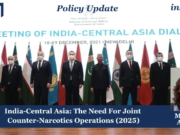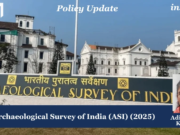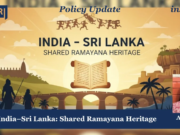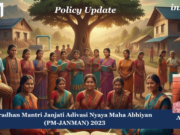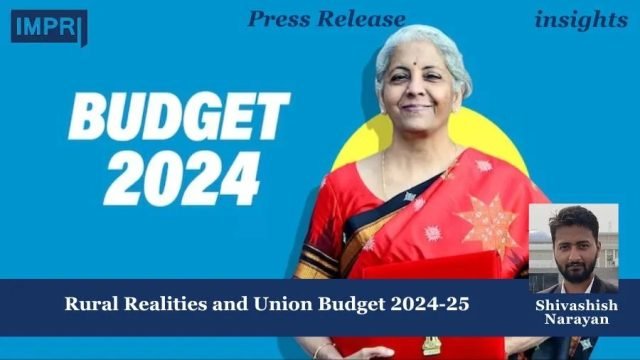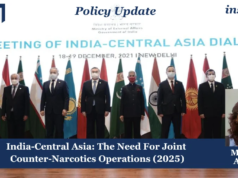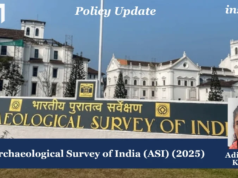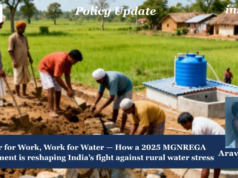Press Release
Shivashish Narayan
The IMPRI Center for Habitat, Urban and Regional Studies (CHURS), IMPRI, Impact and Policy Research Institute, New Delhi, hosted an interactive panel discussion on the topic “Rural Realities and Union Budget 2024-25” on July 27, 2024, at 11:30 a.m. IST, under IMPRI’s 5th Annual Series of Thematic Deliberations and Analysis of Interim Union Budget 2024-25, as part of IMPRI.
The Chair & Moderator of the session Dr J. Dennis Rajakumar, Director of the Economic and Political Weekly Research Foundation (EPWRF) and Visiting Senior Fellow at IMPRI, highlighted the pressing issues facing the rural economy in India as reflected in the Union Budget. Despite urbanization trends, agriculture remains central to the rural sector struggling with a projected growth rate of just 1.4% for 2023-24 significantly below the overall economic growth rate of 7.2%.
Although rural wage rates have seen modest increases these gains are eroded by high inflation with the Consumer Price Index for Rural Labour rising by 6.2%. The labour force participation in rural areas remains high but with over 60% still employed in agriculture any downturn in this sector could have severe repercussions. While the budget allocates funds for rural development there are concerns about whether these measures are sufficient to address the deep-rooted challenges the rural economy faces.
Prof R S Deshpande, Former Professor and Director, Institute for Social and Economic Change, Bangalore; Visiting Distinguished Professor, IMPRI, started with key issues related to rural realities and the Union Budget were examined. Prof. Deshpande highlighted the widening gap between agricultural product prices and input costs which is eroding farmers’ incomes and the increasing shift towards cash crops.
He critiqued the budget’s focus on supply chain management which primarily benefits urban consumers rather than addressing the infrastructure and market access challenges faced by rural farmers. The persistence of high market margins and inadequate market reforms were noted along with concerns about the reliability of wage data and labour availability. Prof. Deshpande emphasized the need for demand in agricultural innovations related to climate change and more focused efforts to address these issues arguing that current measures fall short of alleviating rural distresses.
Prof CSC Sekhar, Professor, Institute of Economic Growth (IEG), New Delhi, expressed disappointment with the recent budgetary allocations for agriculture and rural development, noting a lack of vision and integration despite the appointment of a single minister for both sectors. He criticized inconsistent program funding and called for a more coordinated approach that integrates agricultural activities with broader rural economic development including self-help groups. Prof. Sekhar highlighted the inefficiencies reflected in revised budgetary estimates and argued that increases in expenditure particularly on varietal development. While he acknowledged positive steps like the emphasis on digital public infrastructure and land record digitization. He suggested for natural farming and expressed hope for targeted advancements in oilseeds and pulses.
Dr Donthi Narasimha Reddy, Member, State Advisory Committee, Telangana State Electricity Regulatory Commission; Guest Faculty, ICMR-National Institute of Nutrition; Adjunct Professor, Padala Rama Reddy Law College, Hyderabad; Visiting Senior Fellow at IMPRI, raised critical concerns about the recent budget emphasizing its disproportionate focus on interest payments at the expense of vital sectors like agriculture and rural development. He humorously noted the high representation of South Indian panellists to address regional neglect but critiqued the budget for lacking transparency and accountability, particularly regarding government debt and its role in capital formation.
Dr Reddy expressed scepticism about the government’s priorities citing vague plans for climate resilience, agricultural productivity and rural employment and criticized the budget’s superficial allocations and contradictions. He called for a balanced approach to infrastructure development that considers environmental impacts and questioned the budget’s effectiveness in job creation and protecting traditional livelihoods in sectors like handloom and natural fibres.
Dr Jawed Alam Khan, Senior Fellow, Centre for Budget and Governance Accountability (CBGA); Visiting Senior Fellow, IMPRI, criticized India’s budgeting process for incremental adjustments rather than a needs-based approach. He highlighted the lack of comprehensive needs assessment and planning leading to budgets that fail to address actual requirements. Dr Khan emphasized the importance of analysing budget estimates, revised estimates and actual expenditures to grasp the true fiscal scenario pointing out systemic inefficiencies and underutilization of funds particularly in agriculture.
He critiqued the inadequate funding for rural development and key ministries like Panchayati Raj and called for outcome-based budgeting that aligns with rural needs. Dr Khan also expressed concerns about stagnation in flagship schemes, highlighting issues with wage rate adjustments and payment delays and urged for enhanced local governance to improve fund absorption and service delivery.
Mr Ramanjaneyulu GV, Executive Director, Centre for Sustainable Agriculture, Telangana, criticized the Union Budget for its insufficient allocation towards natural farming with only 356 crores designated translating to just 356 rupees per farmer. He argued that this amount is inadequate compared to the high costs of chemical fertilizers which average around 7,000 rupees per acre and stressed the need for a more substantial budget to support farmers in transitioning to natural farming.
Additionally, he highlighted deficiencies in agricultural research funding and its lack of clarity as well as the need for urgent market reforms, particularly in regions like Punjab and Haryana facing soil and water challenges. Mr Ramanjaneyulu concluded that the budget failed to address critical issues such as market reforms and sustainable practices, missing an opportunity for meaningful agricultural transformation.
Prof Gummadi Sridevi, Professor, School of Economics, University of Hyderabad; Visiting Professor, IMPRI, critiqued the budget’s impact on food and nutrition security, particularly for marginalized communities. She highlighted the significant reduction in allocations for food subsidies and social welfare programs, with food subsidy funding dropping from 7.79% to 4.26% and the PM Poshan scheme’s budget cut from 0.51% to 0.2%. These cuts are expected to exacerbate malnutrition among vulnerable groups. Prof. Sridevi also expressed concern about declining agricultural R&D spending, which, coupled with systemic inefficiencies in programs like Anganwadi centres, threatens productivity and food security. She called for a regional approach to policy-making and increased support for agricultural research to address these pressing issues and meet long-term goals.
The panellists explored the impact of inflation on rural versus urban areas, noting significant differences driven by transportation costs and market inefficiencies. There was a strong call for increased budget allocations to agriculture, food security and rural infrastructure emphasizing the need for a shift from incremental to needs-based budgeting. Concerns were raised about the effectiveness of current policies particularly in areas such as natural farming, agricultural research and rural development schemes. Moving forward, policymakers need to adopt a balanced growth strategy that considers economic, social and environmental factors ensuring equitable support for rural communities and more effective development outcomes.
IMPRI’s 5th Annual Series of Thematic Deliberations and Analysis of Union Budget 2024-25
IMPRI’s 5th Annual Series of Thematic Deliberations and Analysis of Union Budget 2024-25
Watch the event at IMPRI #Web Policy Talk
Rural Realities and Union Budget 2024-25
Acknowledgement- The article is written by Shivashish Narayan, an Intern at IMPRI. He is a law graduate from Indore Institute of Law. His interest areas are policy and legal.


